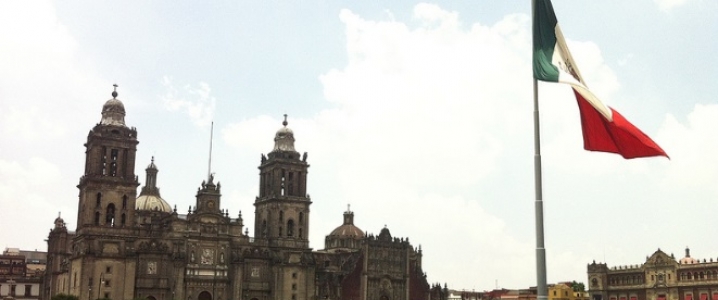Amid declining oil, agricultural, and industrial production, as well as an impending radical regime change, Mexico’s economy contracted more than previously projected in the second quarter, according to Mexico’s national statistics institute. Though just a 0.1 percent contraction was estimated for gross domestic product, the numbers now show that Mexico’s GDP declined at double the rate, down 0.2 percent from the previous quarter in seasonally adjusted terms.
Some service sectors, such as commercial activity, transportation, financial and media grew just 0.2 percent from the previous quarter, compared with a 1 percent expansion in the first quarter. Industrial sectors including mining, construction and manufacturing actually declined by 0.3 percent, while agriculture, livestock and fishing industries showed even bigger signs of trouble, with a 2.1 percent decrease.
In spite of the second-quarter stall, Mexico’s economy is still projected to expand more rapidly this year than in 2017, thanks to accelerated spending before the July 1 presidential election. The economy is expected to increase by 2.2 percent this year and 2.1 percent in 2019, according to analysts in a survey released by Citigroup Inc. That being said, nothing is certain and the trajectory over the coming year will be a rough one. The International Monetary Fund (IMF) recently downgraded its forecast for Mexico’s growth financial growth in 2019, reportedly due to trade tensions and current political instability concerning the North American Free Trade Agreement (NAFTA) and the leftist president-elect’s coming policy shift.
Incoming Mexican president Andres Manuel Lopez Obrador (locally known as AMLO) further catalyzed economic concern this month when he announced his plans to hold a public referendum over whether to cancel the upcoming $13 billion (that’s USD, not pesos) construction of a new international airport for Mexico City, the country’s capital and largest metropolitan area by far. The project was the biggest infrastructural undertaking of sitting president Enrique Pena Nieto, and AMLO has stated that on top of pressing environmental concerns, the planned airport is far too expensive and entangled in many layers of corruption.
Related: The Next Major Challenge For Norway’s Oil Industry
Another reason for wavering confidence in the future of the Mexican economy is the review of oil contracts. AMLO has promised to check over already-awarded contracts for telltale signs of corruption and has also raised eyebrows by appointing an industry newcomer to lead the state-owned oil company Petroleos Mexicanos (Pemex), the largest oil producer in the country. The president-elect will also halt any new oil auctions for the next two years. Serious change, however, could be what Pemex needs, as they are currently over $100 billion in debt after 13 consecutive years of declining output, widespread and violent fuel theft, and international corruption scandals.
AMLO, the first leftist president Mexico has elected in decades, has also promised expanded spending on social programs for marginalized communities such as the elderly and youth, in addition to a major investment of 75 billion pesos ($4 billion) in the oil industry, to be financed through increased government efficiency and a crack-down on institutional corruption. Some critics and economists, however, doubt that this will really be possible without reaching into the pockets of Mexican taxpayers.
Despite the discouraging discourse, some experts are saying that things are not as bad as they look for the Mexican economy. Bill Adams, senior economist at PNC Financial Services Group told Bloomberg that employment growth is steady and healthy in Mexico, and that this quarter’s stall is just the result of a particularly strong first quarter.
Overblown or not, the concerns over the Mexican economy are worth paying attention to in the coming months, especially once all of incumbent president Lopez Obrador’s political shifts begin to transform from campaign trail pledges to concrete legislation. Change is what an absolute majority of what Mexicans voted for, and it is certainly what they will get. Now we’ll find out if it’s what they bargained for.
By Haley Zaremba for Oilprice.com
More Top Reads From Oilprice.com:
- U.S. Sanctions Wreak Havoc On Russia’s Oil Industry
- China Slaps 25% Tariff On U.S. Oil Products
- Energy Is A Breaking Point In NAFTA Deal


















